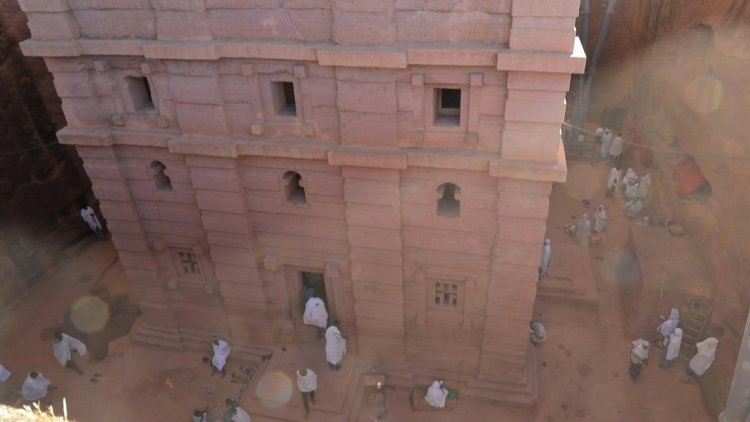Father Tsige Mezgebu was leading an afternoon prayer service in August

Father Tsige Mezgebu was leading an afternoon prayer service in August when a column of haggard-looking rebels entered Lalibela, prompting worshippers to cry out "God save our city!"
He immediately feared the worst for the 11 mediaeval rock-hewn churches that make Lalibela, in northern Ethiopia's Amhara region, a holy site for the country's tens of millions of Orthodox Christians –- as well as a top tourist magnet.
The Tigray People's Liberation Front (TPLF) insurgents have a fearsome reputation, with officials and human rights groups accusing them of indiscriminate killings and mass rape during an offensive in Amhara that began in July.
Yet Father Tsige, administrator of the Lalibela monastery, urged his flock to keep calm and stay home.
"I believe in God, and I had faith that nothing would happen at this holy place," he said.
What followed were four months of deprivation and violence.
Rebels looted homes and health facilities, while residents lost touch with the outside world due to cuts in transportation, electricity, banking and communications.
Doctors became so desperate they used donkeys to smuggle in medicine from government-held territory.
The ordeal ended only last week when the army retook Lalibela as part of a lightning-fast counter-offensive –- the latest dramatic shift in Ethiopia's unpredictable 13-month war.
The arrival of the army last week -- along with members of the Amhara special forces and a militia known as Fano -- brought immediate relief to many Lalibela residents.
"The people were suffering and humiliated, and they lived under a burden," said Fano fighter Eshete Zewudru.















